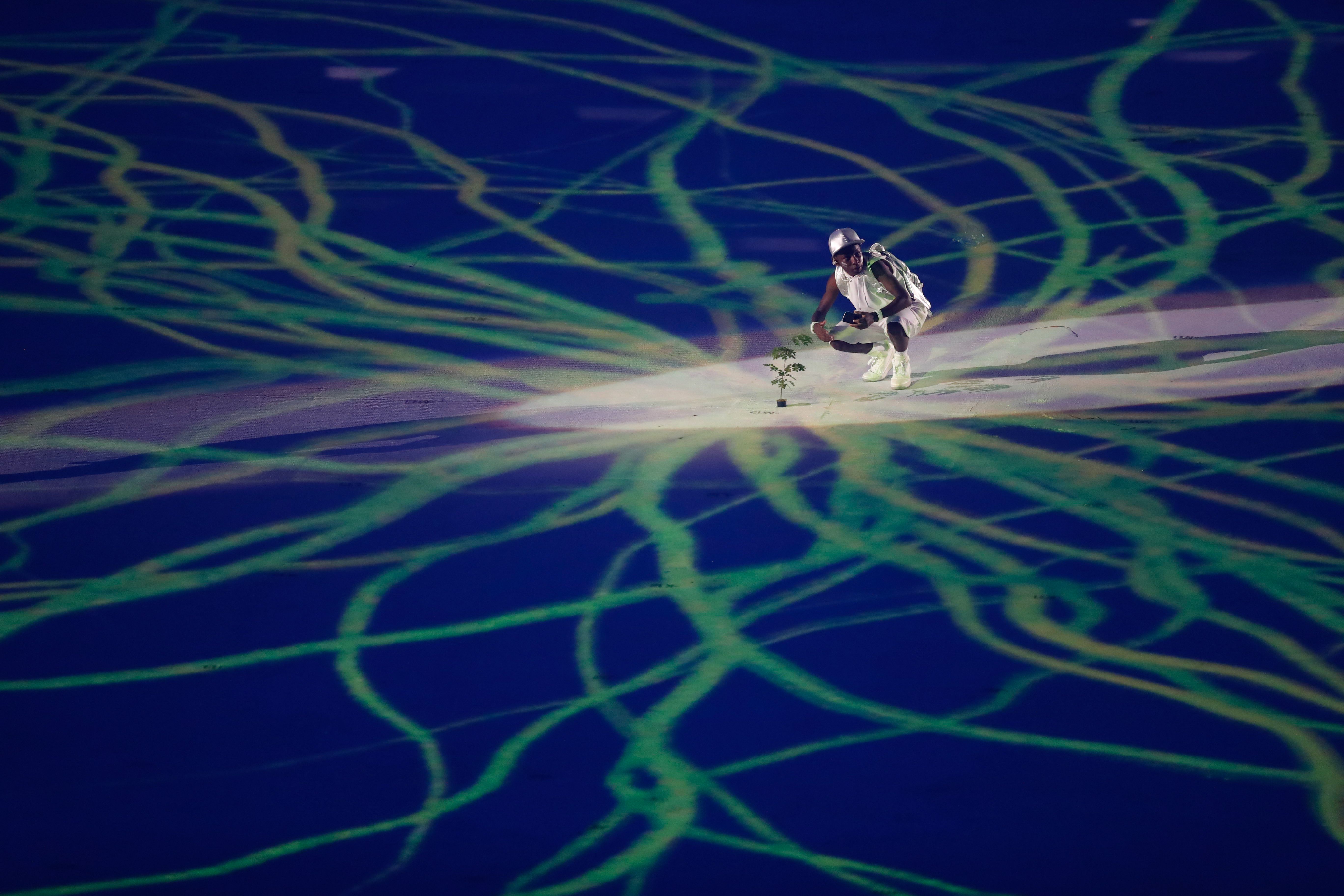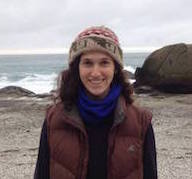While watching the extravagant opening ceremony of this year’s Olympics in Rio, something made me spring straight up from the couch.
I saw the complex history of intertwining cultures crisscross the dense Brazilian forest floor, leaving tracks, roads and agriculture in their wake. The native landscape of Brazil began to disappear.
After a short film on climate change and its impact around the world, each Olympic athlete proceeded to plant “Seeds of Hope” as they entered the arena. They planted 10,500 tree seeds—a total of 207 native species, one for each country in the Games.
Although the games in Rio have fallen under intense criticism, in my opinion, the focus on climate was necessary for Rio and our planet. The turmoil in Brazil doesn’t nullify the messages of the ceremony, but rather asks us to see the contrast and make the connection.
We exist in a world of extremes. We watch the costly Olympics for entertainment while right beside it the environmental issues of our time stare us in the face. We eat meat and fly to foreign lands while we rest at swimming holes and celebrate the seasons.
Recently, this realization almost broke me apart.
Over the last few months I’ve been exploring all issues in the realm of green living through my apprenticeship with elephant journal. It has been eye-opening and downright depressing at some points. Awakening to the suffering and psychological pollution of social, environmental, and health systems of the world is overwhelming.
Day by day, I would scour elephant journal for green articles, enveloping myself in the issues of our world. I dug deep some days, finding articles from years ago that sent messages or pleas—similar to what we still see today—for healthier eating, conscious consumerism, and climate changes.
I found beauty and compassion in the enlightened souls who chose to awaken to Mother Earth, gaia or pachamama, despite their (and my) eco-anxiety.
Meanwhile, I’d go out into the world and encounter wasteful and unaware people and businesses everywhere. The more I learned, the more contrasts I saw between earth-friendly and earth-unfriendly ways—even in myself—and I began to feel a separation.
I felt stressed trying to fight the wave of apathy I felt around me on some days. So I’d put it out of my mind and think, “just today, it’s okay to use the plastic bags, it’s okay to let the shower run for a while before getting in.” Perhaps many of us are subjected to feelings of stress or apathy toward the environment due to the stark contrasts in our society.
Yet, in the deep corners of my thoughts, I sensed a tugging. At first, I identified this as guilt about not doing what I “should.” But in finding ways to cope with my sporadic apathy and feelings of strain, I realized something larger was at play. This tugging was the deep, earthly connection we all have just by being here.
It was a call to awaken, to love and connect. To choose a path of commonality with the world around us and cultivate that connection despite deep contrasts. So, in a healing journey of curiosity and patience, I found three cyclical ways to expand and act on our environmental consciousness.
1. Cultivate a universal mindset.
“The trees are our lungs, the rivers our circulation, the air our breath, and the earth our body.” ~ Deepak Chopra
This is a challenge for many of us. In my house, the walls create a barrier between me and the outside world, which makes it easier to close out the undeniable connectivity I have with the rest of the earth. It’s isolating, so I step outside.
I feel the vibrations with the earth, radiating in and out with my heartbeat. Whether I’m on a farm in South America or sitting on a rocky beach by a busy city, I still feel conscious of the green spaces I love in other parts of the world.
I feel that animals and plants are extensions of who we are—beings that also depend on water and air. The animals are suffering a great deal already. And we are not separate from that. We are tied up in it; we are suffering, too. This issue is personal, whether we live in the desert or in the suburbs. So finding ways to personally connect, whether on a trail or by a river, is crucial.
I encourage everyone to cultivate an off-the-grid connection. Because it’s here where we can grow a more profound inner sense of awakening and connection—not through social media, but in the subtle rhythms of the crickets or the creeping tides of the moon.
2. Become aware and interested in our “footprints.”
“Green is a process, not a status. We need to think of ‘green’ as a verb, not an adjective.” ~ Daniel Goleman
As I tune into a global mindset, my actions begin to incorporate that awareness. I choose less, instead of more. I appreciate the day and night sky for the fleeting moments they are.
If I can return to the earth and be nourished by it (take), I feel a natural responsibility to nurture it back (give). Has anyone had a successful take-take relationship? I haven’t.
So we can start to ask, how do we contribute—directly or indirectly—to climate destruction? How are my daily habits and consumption unsustainable?
I’ve learned to not only focus on my waste and carbon emissions, but also where my stuff comes from. Is it local? Is the packaging plastic? Are the ingredients contributing to the loss of Orangutan and other wildlife habitats? Is my clothing from a reliable source? As consumers, we have an incredible power to change the market and hold it to sustainable and fair standards.
By choosing better (and fewer) products, I help create a market that chooses love and conservation over greed and waste. By focusing on long-term quality and use rather than short-term satisfaction, I help grow a deeper appreciation for sustainable cohabitation in our swiftly growing and changing world.
Most of us spend the majority of time in our immediate sleeping and eating spaces, rather than the other parts of our home or town. In true permaculture style, if we focus first on our immediate surroundings, our earth-loving changes may echo out to larger rings of the community when the time comes.
3. Think about the big picture. It’s larger than you and me.
“Society grows great when old men plant trees whose shade they know they shall never sit in.” ~ Greek Proverb
Climate change is not isolated. So, it’s not about going off the grid (although it can be!), but about contributing to the grid. Recognizing our interdependence and interconnectedness.
For example, we can cultivate expansive and profound connection with the earth through travel. Ecotourism, volunteer vacationing and carbon offsets for flights are fulfilling options.
Locally, we can look at human and animal environmental rights. We can continue to shape the grid through demanding safe energy and carbon taxes, waste regulation and agricultural and building standards, and even higher green standards and local sustainability efforts for future high-volume sporting events.
Our health depends on the health of our communities. Creating a sense of community through environmental efforts helps us hope and cope with climate issues. This step in particular is challenging for me because sometimes I feel occupied with the other two. But I believe it is a crucial way to cultivate hope and meaningful change. Our earth is large, and so must our efforts be.
As we each make steps to draw threads between the contrasts around us, we may create a world that supports a truer Eco-Olympics. Ultimately, the Seeds of Hope planted by the Olympians were just that—an action of hopefulness. Rather than a way to deny and wash over the current situation, Rio chose hope and awareness through action.
In our world of contrasts, we can live either in a place of hope or despair—each takes the same amount of work. So, I return each day to the small places that represent my nature sanctuaries. And in my daily life, I bring that presence to my hopeful efforts, seeking to expand that connection with others, or within myself and the space I take up.
I invite you to take steps into awareness and incorporate them into the larger definition of who you are.
Author: Sarah Crosky
Image: Fernando Frazão/Agência Brasil/Wikimedia
Editor: Nicole Cameron









Read 0 comments and reply